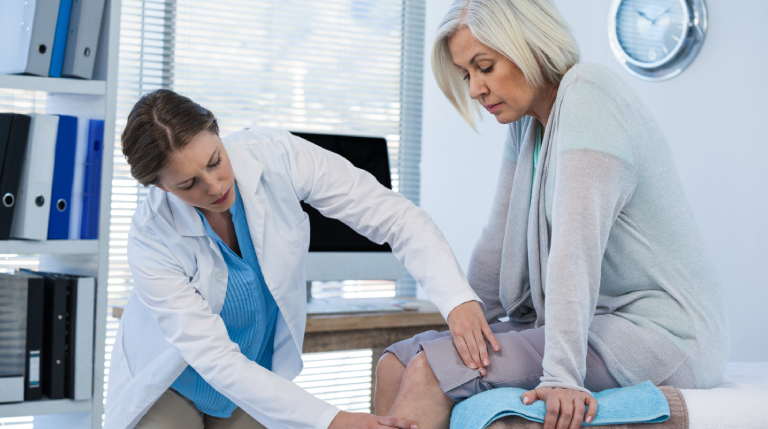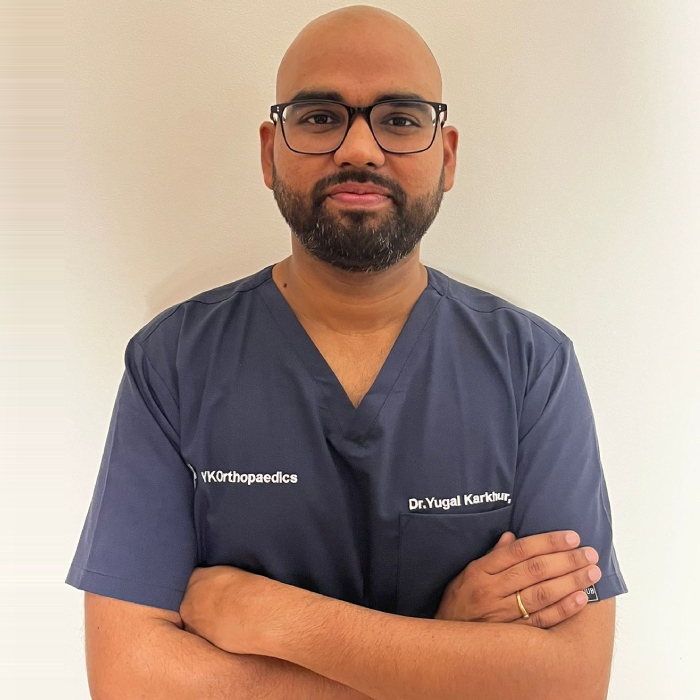Synopsis
An early diagnosis of an ACL injury is crucial for effective treatment and successful recovery. This blog explores the importance of timely intervention and the various treatment strategies available under the expert care of Dr. Yugal Karkhur. Learn about the latest diagnostic tools and techniques that help accurately assess ACL injuries and the comprehensive treatment plans. Dr. Karkhur’s approach not only aims to restore knee functionality but also focuses on personalized care tailored to each patient’s needs. Dive into the best practices for ACL injury management and discover how advanced treatment options can significantly improve recovery outcomes.
Table of Contents
- Understanding ACL Injuries and the Importance of Early Diagnosis
- Diagnostic Techniques and Their Role in ACL Treatment
Understanding ACL Injuries and the Importance of Early Diagnosis
Anterior Cruciate Ligament (ACL) injuries are among the most common knee injuries, especially in athletes and individuals engaged in high-impact sports. The ACL is crucial for proper knee stability and movement, and an injury can lead to significant pain, swelling, and long-term mobility issues if not properly addressed. Early diagnosis is essential to prevent further damage and to start effective treatment quickly.
Dr. Yugal Karkhur emphasizes recognizing the signs of an ACL injury early and seeking professional medical advice promptly. Symptoms often include a “popping” noise at the time of injury, severe pain, and rapid swelling. Early consultation can lead to a quicker initiation of appropriate treatment measures, potentially avoiding the need for more invasive procedures.
Diagnostic Techniques and Their Role in ACL Treatment
Accurate diagnosis of an ACL injury involves a combination of clinical examination and imaging techniques. Dr. Karkhur utilizes state-of-the-art diagnostic tools, including MRI scans, which provide detailed images of the knee’s internal structures. These tools help assess the injury’s extent and plan the appliance treatment strategy.
Physical examinations and patient history also play a crucial role. Dr Karkhur conducts comprehensive assessments to understand the mechanism of injury and any previous knee issues, which are critical for tailoring the treatment plan to the patient’s needs.
Surgical and Non-Surgical Treatment Options
Once an ACL injury is accurately diagnosed, Dr. Yugal Karkhur discusses surgical and non-surgical treatment options with the patient, considering their lifestyle, activity levels, and personal health goals. For minor injuries or patients with low activity demands, non-surgical treatments such as physical therapy, bracing, and controlled exercises might be sufficient. These treatments focus on strengthening the muscles around the knee to compensate for the damaged ligament and improve joint stability.
For more severe injuries or for individuals who lead active lifestyles, surgical intervention, specifically ACL reconstruction, is often recommended. Dr. Karkhur employs advanced ACL surgery techniques, using either autografts (tissue from the patient’s body) or allografts (donor tissue) to replace the torn ligament. His surgical approach is minimally invasive, utilizing arthroscopic techniques to reduce recovery time and increase the success rate of the surgery.
Rehabilitation Techniques Post-ACL Surgery
Rehabilitation post-ACL surgery is critical for a successful recovery and long-term knee functionality. Dr. Karkhur works closely with rehabilitation specialists to develop a personalized recovery plan for each patient. This plan typically starts with gentle motion exercises to regain movement and progresses to more strenuous activities designed to strengthen the knee and prevent future injuries.
Rehabilitation is a phased process, beginning with managing pain and reducing inflammation. It is then followed by gradually increasing the knee’s load-bearing capacity through targeted exercises. Each phase is carefully monitored to ensure optimal healing and progression without overloading the recovering ligament.
Long-term Management of ACL Injuries
Long-term management of ACL injuries under Dr. Karkhur’s care involves regular follow-ups to monitor the recovery process and adjustments in the rehabilitation program as needed. He also advises on lifestyle modifications and exercises that can be continued at home to maintain knee health and prevent future injuries. Dr. Karkhur emphasizes the importance of patient education in understanding their knee condition, the mechanics of injury prevention, and the role of regular physical activity in maintaining joint health.
Dr. Yugal Karkhur’s Approach to ACL Injuries
Dr. Karkhur’s approach to treating ACL injuries is comprehensive. He combines cutting-edge surgical techniques with individualized rehabilitation plans to ensure the best outcomes for his patients. His deep understanding of orthopaedics, commitment to using the latest medical advancements, and dedication to patient care set him apart in ACL injury treatment.
His holistic treatment strategy focuses on recovering from the current injury and strengthening the knee to handle future stresses. This approach helps patients not just return to their pre-injury state but often surpass their previous levels of physical ability.
Conclusion
Dr Yugal Karkhur’s integrated approach to ACL injury management ensures that each patient receives top-tier surgical treatment and a personalized rehabilitation program that supports their return to full activity. His expertise and dedication to patient care make him a trusted choice for anyone suffering from an ACL injury, giving them the confidence that they receive the best possible care to return to an active, fulfilling lifestyle.


